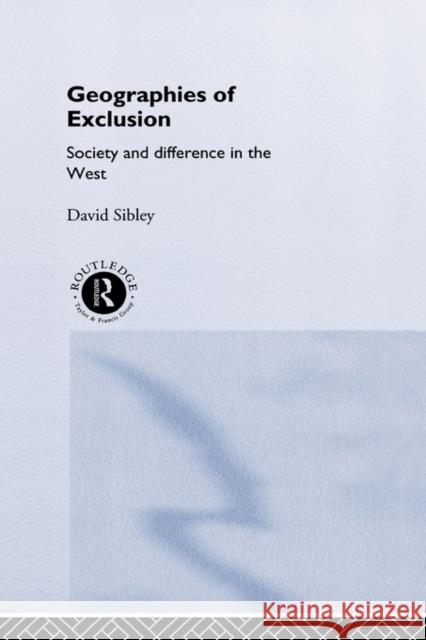Geographies of Exclusion: Society and Difference in the West » książka
Geographies of Exclusion: Society and Difference in the West
ISBN-13: 9780415119245 / Angielski / Twarda / 1995 / 224 str.
Geographies of Exclusion: Society and Difference in the West
ISBN-13: 9780415119245 / Angielski / Twarda / 1995 / 224 str.
(netto: 839,61 VAT: 5%)
Najniższa cena z 30 dni: 856,36
ok. 16-18 dni roboczych.
Darmowa dostawa!
Images of exclusion characterized western cultures over long historical periods. In the developed society of racism, sexism and the marginalization of minority groups, exclusion has become the dominant factor in the creation of social and spatial boundaries. This text seeks to identify the forms of social and spatial exclusion, and subsequently examine the fate of knowledge of space and society which has been produced by members of excluded groups. Evaluating writing on urban society by women and black writers, the author asks why such work is neglected by the academic establishment, suggesting that both practices which result in the exclusion of minorities and those which result in the exclusion of knowledge have important implications for theory and method in human geography. Drawing on a wide range of ideas from social anthropology, feminist theory, sociology, human geography and psychoanalysis, the book presents an approach to geographical theory, highlighting the tendency of powerful groups to purify space and to view minorities as defiled and polluting, and exploring the nature of difference and the production of knowledge.











